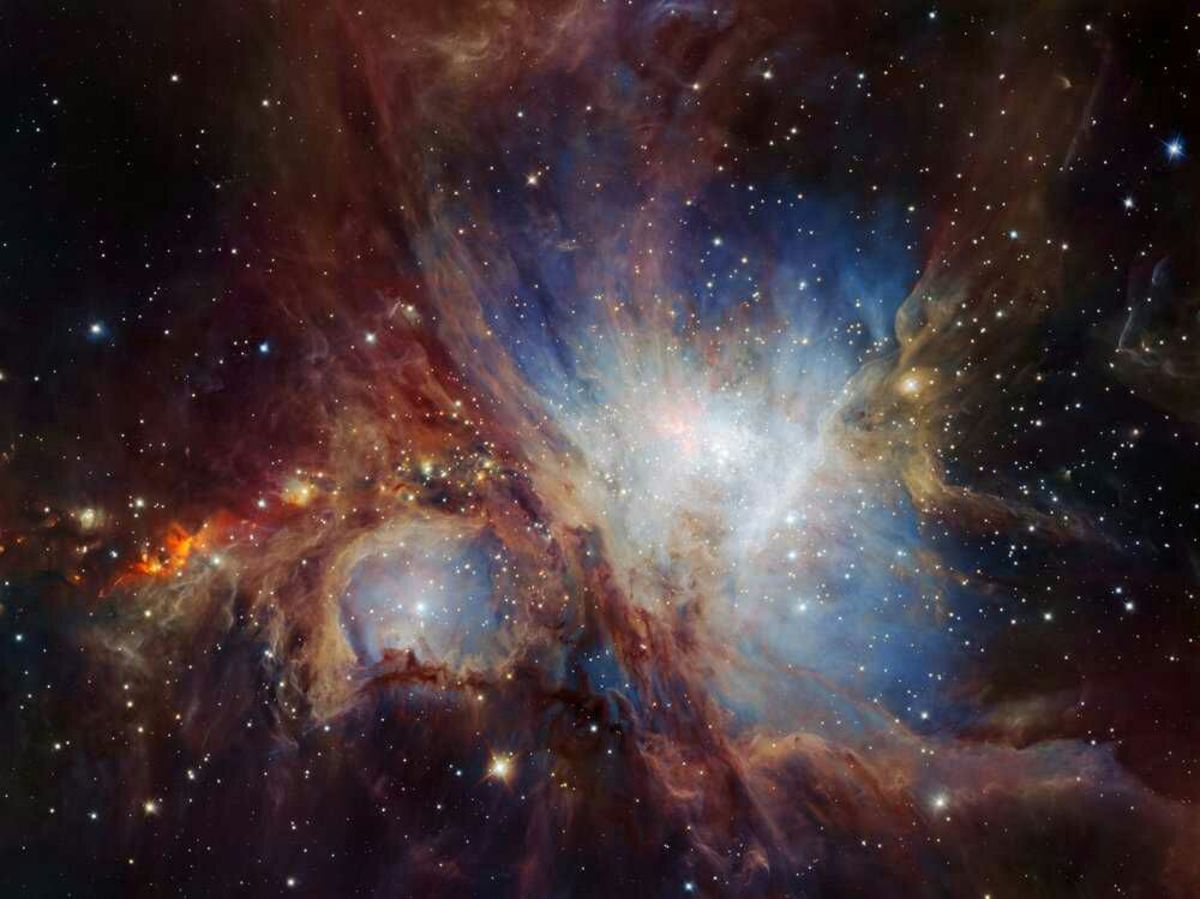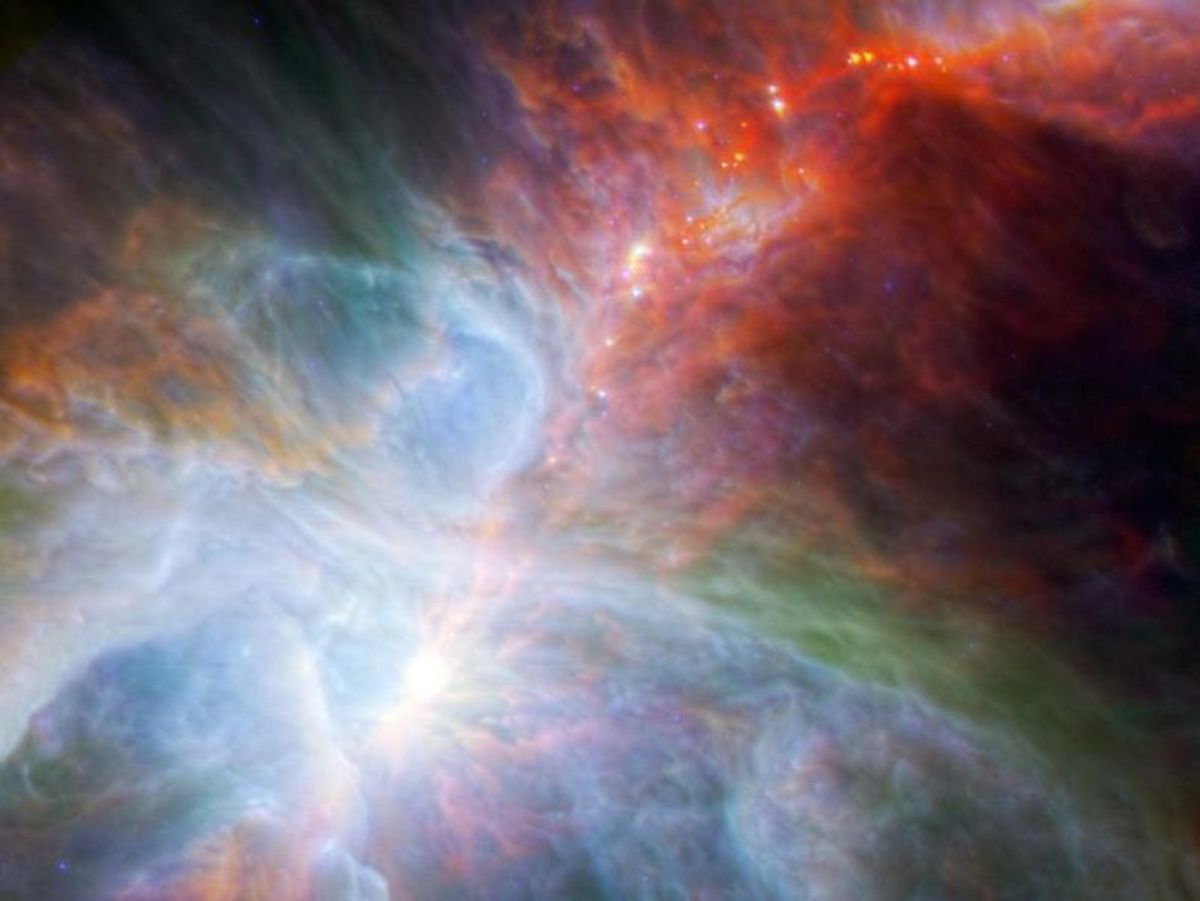The Universe, the Earth, and Us: Our Origins
Timeline of the universe
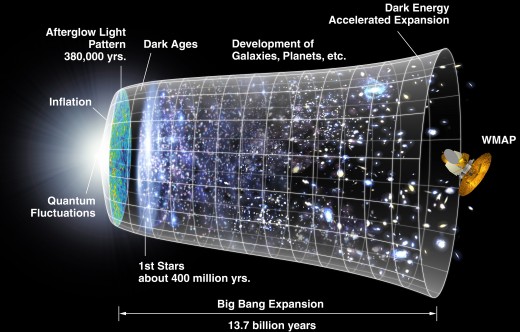
Origins, a real game changing book for me
I actually came across this book in a used bookshop, and it immediately piqued my curiosity. At the time, I was mainly interested in books about Physics and I've read dozens, from Hawking to Brian Greene, to Feynman to Einstein. I was considerably more interested, therefore, in the section in this book on the origin of the cosmos itself; the other stuff seemed sort of like small potatoes in comparison (after all, biology and geology can really be boiled down to really general explanations of physics at their core).
As I read on, though, I noticed two things that fundamentally changed my perception of other sciences and of origins themselves. The first key insight is how very similar these origins were to one another. The universe, earth, and mankind all spawned from chaos, and all three gradually became more and more ordered over time (and no, this is not a contradiction of the 2nd law of thermodynamics, because as pockets of matter become more and more organized, the overall universe as a whole sees a steady overall increase in entropy). The second insight revolved around the idea that the earth and mankind's existence were more or less inevitable given the way the universe evolved, and each was deeply connected to the subsequent origin.
Now, as a result, I'm fascinated by early anthropology, and eventually, I was ready to consider big ideas like the technological singularity and the potential "strong AI" occurrence that may well happen within my lifetime. I was able to see the truly big picture.
Big Bang
13.7 billion years ago, give or take, our forefathers brought forth unto this existence a new universe (note to readers: please don't take this literally!). A minuscule point with zero dimensions contained all of the mass-energy in the universe (matter is energy, so it's probably easier for us to think in terms of that point containing all of the energy, since cramming matter into tiny spaces makes our brains hurt). From there, the universe itself exploded outward- not into space, but creating space as it went along.
Nearly 14 thousand million years later, here we are, still expanding outward from that incident (actually going ever faster, too!). What were those beginnings like, and what can we learn about ourselves from studying these beginnings? As it turns out, we can learn quite a lot. At the Large Hadron Collider (LHC), conditions that haven't existed in the universe since very near to the Big Bang itself are created "on the regs" (on a regular basis), and one of the recent results has been the discovery of the Higgs particle and the verification of the standard model of particle physics. We're made up of particles, of course, but the Higgs goes toward explaining how our reality works, as it's considered verification of the method by which mass exists.
Accretion of a forming solar system (like the sun and earth)
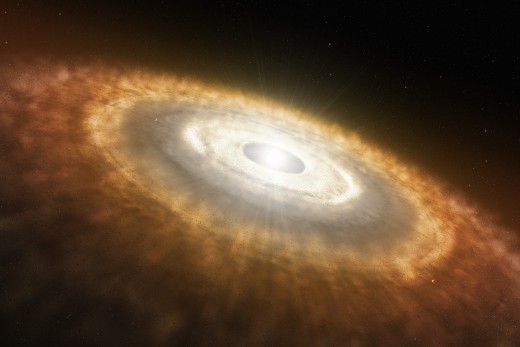
Geology
What about the formation of the earth? To me, it's amazing to think about how all of the swirling dust that eventually coalesced into the sun is the same stuff that made up the earth. Of course, that's also the same stuff that made us up, too, so we can't really have an understanding of our own evolution without first understanding the evolution of the earth!
Eventually, the sun burned away excess dust (radiated it outward with heat, or just gobbled up a lot of the extra dust), and the earth formed in much the same manner as the sun. From there, it's a somewhat more familiar tale for most of us who went to school: the earth was molten due to the original process of accretion (dust and matter swirling in together, attracted by gravity). Gradually, crust cooled and became solid, and an atmosphere formed.
The early earth's atmosphere contained virtually no oxygen! We humans would not have fared well, and neither would most of modern life today, but species did begin to form nearly 4 billion years ago anyway, and the tale of life is interwoven into earth's tale.
It's also amazing to think that the earth is about a third as old as the universe itself! This piece of rock has been here for a long, long time.
Charles Darwin
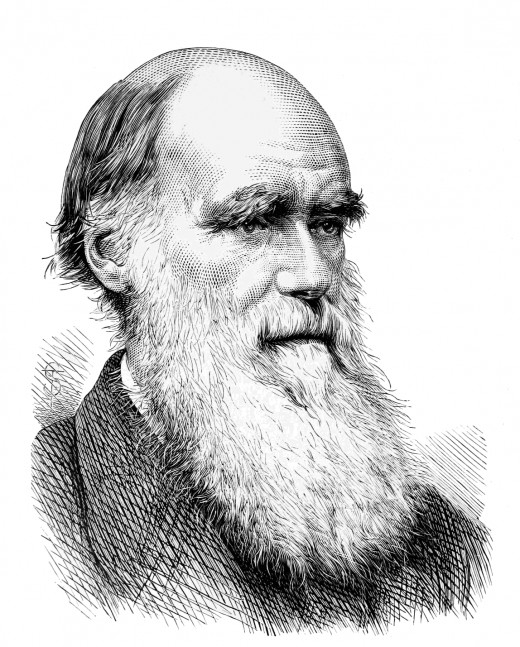
Origins of life and humans
Okay, so we kind of get how the universe got here (insofar as we are capable of understanding up to this point), and we have a great picture of how the earth arose. What about life itself, and eventually human beings?
This is the story of biological evolution, and it's a real doozy. Essentially, trillions upon trillions of random molecules formed during the ideal conditions of the early earth (right after it formed, linking these two origin stories in an obvious way). One of these molecules (RNA) was capable of copying itself, and the rest is history.
The organisms capable of best reproducing survived, and those that weren't so capable simply didn't. There are many, many, many times more species that didn't make it- the overwhelming majority of species ever to exist on earth are long since extinct. We are the product of billions of years of natural selection!
Unbelievably (to me, at least), the nearly 4 billion year history of life is dominated for its first 4/5ths by microscopic life. Complex multicellular life gave rise to the Cambrian explosion, and of course the dinosaurs dominated the majority of the remainder of that time. A catastrophic event caused their extinction and the rise and dominance of kingdom mammalia, and the rest is history.





